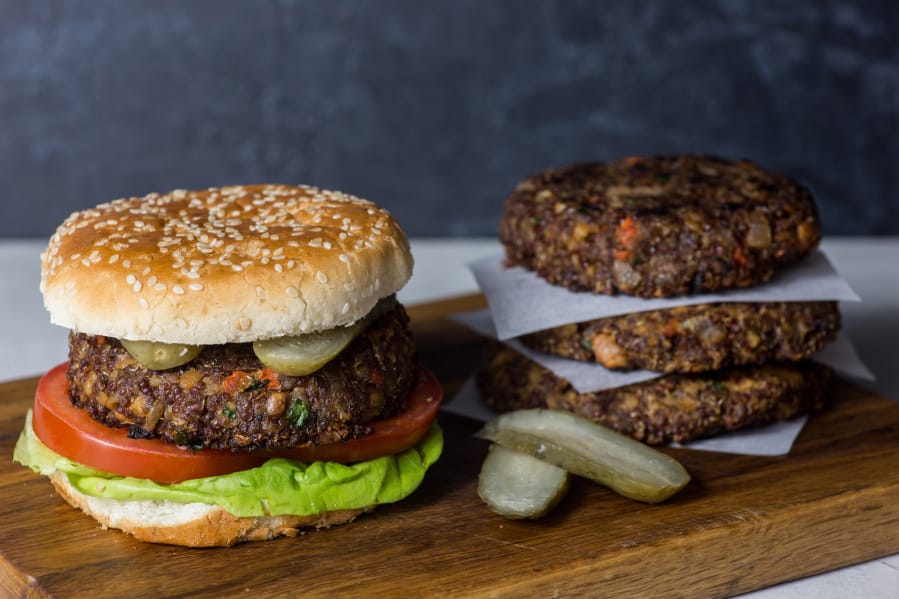The first time I tried the title item at Brooks Headley’s little New York sensation of a restaurant, Superiority Burger, I thought: What’s the big deal? It tasted really good, but it certainly didn’t remind me of a beef burger, not in the way that the lab-concocted Beyond Burger and Impossible Burger do. And it was so small it was more like a slider than a burger.
Then I got an advance copy of Headley’s upcoming cookbook, called “Superiority Burger Cookbook” (Why mess with a good thing?), and read the headnote to the first recipe: “This is not fake meat, nor is it vying to be,” Headley writes, and then he follows that with one of my favorite lines in a cookbook in recent memory: “The un-likeness to the real thing is canny.”
All of a sudden, the appeal of his burger started to make so much more sense, and I couldn’t wait to try the recipe.
Headley doesn’t sweat some of the details – such as the oil needed for sauteing an onion or the amounts of salt and pepper. But his recipe includes brilliant flavor-building strokes, including long roasting of diced carrot, a heavy hand with toasted fennel seed, a little vinegar for de-glazing crispy bits from the pan, and more. The burgers keep a nice chunky texture from crushed walnuts, hand-mashed chickpeas and more quinoa than I would have expected. And they hold together, thanks to his use of a slurry made from potato starch and water, folded in as a binder.




